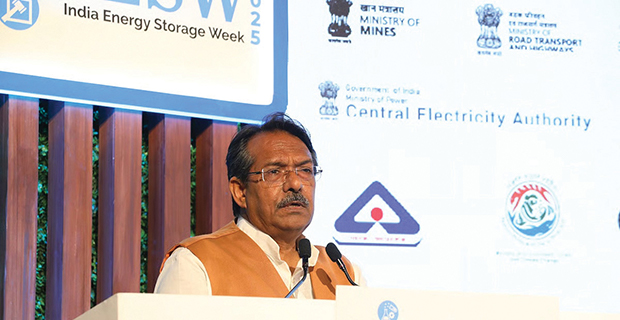Highway Revolution
India’s national highway expansion is fueling economic growth, employment, and sustainability, Minister of State Harsh Malhotra said at the Road and Highways Summit in New Delhi.
New Delhi: India’s national highway network has expanded from 91,000 km in 2014 to over 1.46 lakh km today, making it the second-largest road network globally, Minister of State for Road, Transport and Highways Harsh Malhotra said in July. Speaking at the Road and Highways Summit in the capital, the minister noted that government spending on road infrastructure has increased 6.4 times between 2013–14 and 2024–25. Budget allocation for the sector has surged by 57 per cent from 2014 to 2023–24, underlining the government’s steadfast commitment to mobility, connectivity, and growth.
He added that recent infrastructure development has generated 45 crore man-days of direct employment, 57 crore man-days of indirect employment, and 532 crore man-days of induced employment, reflecting the sector’s vast impact on job creation.
Malhotra highlighted that over 10,000 km of National Highways have been built in the North Eastern Region in the past decade, showcasing Prime Minister Narendra Modi’s emphasis on regional integration. The minister also discussed the Delhi Decongestion Plan, aimed at easing traffic and pollution in the national capital. The plan includes extending the Delhi-Amritsar-Katra Expressway (NE-5) to UER-II (NH-344M) in Delhi and Haryana; extending UER-II near Alipur to the Delhi-Dehradun Expressway (NH-709B) near Tronica City in Delhi and Uttar Pradesh; and constructing a road tunnel from Dwarka Expressway to Nelson Mandela Marg, Vasant Kunj.
Malhotra announced that the Ministry is working to develop over 700 Wayside Amenities (WSAs) by 2028–29, offering clean restrooms, quality food, fuel stations, rest areas, and EV charging points. He said road safety remains a top priority, with 14,000 accident-prone blackspots already rectified. He praised the implementation of key initiatives such as the Good Samaritan Scheme and the Cashless Golden Hour Scheme.
Highlighting the Ministry’s green efforts, Malhotra shared that over 4.78 crore trees have been planted along highways and about 70,000 trees have been transplanted as part of initiatives like the Green Highways Policy and ‘Ek Ped Maa Ke Naam’.
The Ministry is also adopting eco-friendly practices, including using over 80 lakh tonnes of plastic waste in projects like UER-II and the Ahmedabad–Dholera Expressway. Fly ash from thermal plants is also being used in highway construction, reducing the reliance on raw materials and emissions.
He concluded that building more highways is crucial to realizing the vision of Viksit Bharat by 2047. Every rupee invested in highways generates triple the GDP return, creates jobs, and opens revenue avenues. “The government is not just building roads; it is laying the foundation for a prosperous, peaceful, and resilient Bharat,” Malhotra said.











Comments.